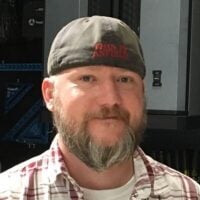The Bosch SoundSee Robot Could Make Life Easier For Astronauts
Bosch has teamed up with Dr. Colin Michael Foale, former US astronaut and ISS commander, and Astrobotic, a U.S.-based company that specializes in space robotics, to develop a system for finding mechanical problems on a spacecraft before they really become a problem. The Bosch SoundSee, a robot with an AI-based sensor system, is the solution currently being tested on the International Space Station.
A Day in the Life
As the former record holder for the most days spent in space (374), Dr. Foale knows all about the rigors of life in space shuttles and space stations. As it turns out, astronauts don’t spend their days resting on their laurels in zero gravity, they actually have a pretty full schedule between running experiments, maintaining equipment and systems, and keeping their bodies from atrophy.
Bosch believes that the SoundSee can help with one of those areas. Essentially, the Bosch SoundSee is an autonomously roving microphone that records the operating noises emitted by individual machines.
The audio files get sent back to Earth for evaluation against typical sound patterns. Any deviations would determine whether the machines are malfunctioning. These audio files can even predict a problem that has yet to occur. This sort of preventative troubleshooting can save astronauts time and energy on maintaining essential systems, like lighting and air treatment.
Space is a fascinating place, but it’s also a place where failures can lead to serious problems. That’s why I helped develop Bosch SoundSee. It’s designed to identify imminent failures by analyzing machine noise. So, with the help of artificial intelligence, we can hear when something is about to go wrong.
—Dr. Michael Foale
The system reminds us of the way the Fluke Vibration Sensor measures vibration to detect premature failure of motors before it causes an actual machine failure…just with sound.
What Does the Future Hold?
Foale believes that AI systems like the Bosch SoundSee will be pivotal in accelerating space exploration. Perhaps eventually, the collaboration between humans and robots will further fields like space tourism, asteroid mining, and the colonization of new planets.
If SoundSee testing proves successful on the ISS, AI could eventually automate the actual troubleshooting process on spacecraft. Bosch hopes that their robot becomes an indispensable tool for the exploration of space, though they see the potential benefits of the SoundSee on Earth as well. These robots could prove useful in monitoring HVAC systems, ventilation systems, and automobile engines.
For now, outer space presents an ideal testing ground for the SoundSee robots as the vacuum of space eliminates extraneous noise.
To learn more about the Bosch SoundSee robot and Dr. Foale, visit Bosch.com.






